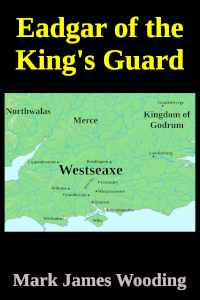The Oracle at Delphi never knew where she was going to be when the gods decided to send her a vision. Her location mattered because when a vision came she lost all sense of the world around her. Often her arms would have spasms during a vision, and sometimes she fell down.
She wished that the gods would schedule their revelations so that she could lie down on a bed or a couch before they came. The Oracle really hated it when the vision occurred while she was on the chamber pot. The gods might think it was funny, but the Oracle didn’t.
On this day the vision came while she was applying color to her lips. She ended up with a red streak from her lips to her left ear. She hoped that the gods had gotten a good laugh out of it. But they were the gods, and she was just their humble servant.
Maybe that was the whole point of the inconvenient timing: to ensure that she remained humble. Her position was an important one, with people telling her every day how great she was. Without the little tricks that the gods played on her, it would have been easy to become impressed by herself, and to forget that her gifts were not her own, but were only on loan to her until the gods saw fit to take them away.
After repairing her makeup, the Oracle emerged from her private chamber. She said to her followers:
Behold! The gods have revealed to me a new prophecy! A hero will be born who may or may not rescue the people of Alfalfion from an impending doom! And the gods will tell this hero that he has the power to save the suffering ones from their oppressors, but that he doesn’t have to save them if he doesn’t want to! And this hero shall be known as the Suggested One!
Years later, but still during the golden age of ancient Greece, a child was born in the city of Alfalfion. Actually, many children were born in that city, but there was one child of particular interest. His name was Protagonis. At birth he seemed an ordinary baby, but as he grew he became the greatest fighter that his people had ever seen. And he could cook, too, but he didn’t cook often because when he did his friends made fun of him, and called him a girly boy.
The people marveled at his skill on the battlefield. He could slay six enemies with a single swing of his sword. With his shield he could crack the skull of any foe.
In spite of his prowess, Protagonis was lonely. Growing up, he had seen his parents argue time after time, day after day, year after year. For this reason he avoided romantic relationships. He would rather be alone than live like that.
But being alone is lonely, which brought him back to his desire for female companionship. He wanted a wife, but he wanted a wife who would be obedient. He had no use for a woman that was going to constantly argue with him. Protagonis wanted a wife that would competently do her work on her own, but when Protagonis occasionally wanted her to do something different, he wanted her to obey without arguing, and preferably with a smile.
It had been rumored that across the sea such a creature did in fact exist, so Protagonis set forth on a quest to find this rarest of women. During his search he had numerous adventures, including a battle against the Flyin’ Lion of Tigrates. He also met many hundreds of maidens, from snow-white beauties of the north to ebony-skinned wonders of the south.
His search was fruitless. Using the magical Lamp of Digestes, a lantern which revealed if a woman would truly be obedient, he found not a single one. Each maid had her own secret agenda. She either wanted to change Protagonis into the man that she wanted him to be, or she wanted him to support her while she had fun elsewhere at his expense.
After two years, Protagonis was exhausted and disappointed. He decided to take a break at the Atlantis Resort and Casino. He had heard many good things about their spa.
During breakfast on his second day at the resort, he overheard someone say that his native city was under siege. Several Alfalfionese merchants had publicly stated that Milkomagnesian tourists in Alfalfion were poor tippers. The Milkomagnesians were outraged. They thought that showing up itself was an act of great generosity. If they tipped anything at all it was an act of great magnanimity. The Milkomagnesians felt that they were strong enough to avenge this insult by taking Alfalfion by force, so they set out to do so.
It was an expensive venture. If they didn’t make enough to pay for it by looting the city and selling its inhabitants, they figured they could make up the difference with all the tips they’d never have to pay to the Alfalfionese.
Protagonis didn’t want to think about the troubles of his home city. He just wanted to relax. He went to the outdoor pool, sat down in a chaise lounge, and he closed his eyes. While he was sitting there soaking up the warm rays of the sun, he saw something in his mind.
There was a man wearing winged sandals and a winged hat. It was Hermes, the messenger of the gods.
The wings on the hat contracted as if under great strain, then the hat rose an inch and a half on one side. The hat’s wings relaxed. Hermes reached up under the hat and removed an egg. He tossed the egg aside. Hermes told Protagonis that Protagonis’s powers had been a gift from the gods. This gift had been granted so that Protagonis could save Alfalfion in its time of need, but only if he wanted to. Protagonis was free to choose. Most of the people of Alfalfion were jerks, said Hermes, so Zeus wouldn’t be mad at him if Protagonis decided to let the people suffer. If Protagonis did save them, it would be entertaining for Zeus; but if Protagonis didn’t, then Zeus would instead hook up with a girl from Kregslistekes. Then the wings on the sandals of Hermes started flapping, and Hermes flew away.
Protagonis opened his eyes. He was still in the chaise lounge by the outdoor pool. He looked around. Hermes was not in sight, but Protagonis saw a broken egg on the cement.
A handful of tourists were also at the pool. Some of them sat or reclined in chairs, and read or napped while they worked on their tans. Others of them enjoyed a dip in the crystal clear water of the Olympic-sized pool. None of them acted like they had just seen Hermes.
Protagonis wasn’t sure if what had just happened was a vision or merely a daydream. If it wasn’t a vision, he had no idea why there would be an egg on the concrete near him. He was sure, however, that he was tired. He didn’t want to leave the resort. The journey home was a long one. It was fraught with peril, and boredom, and chariot-taxi drivers who spoke Greek with a thick foreign accent that was hard to understand.
Protagonis closed his eyes. He decided he would take a nap. Before he could fall asleep, however, a bird pooped on Protagonis’s head. The hero sat up straight and opened his eyes. He knew that the guano from the sky was an omen. It was a sign that in the near future he would wash his hair. But was it also a sign that he should save his people? He decided that he would do both.
The journey to Alfalfion took three long months. The city was still under siege when Protagonis finally arrived, and they were running out of food and water. The Alfalfionese had not yet raised the white flag, but they flew a flag that was a very light shade of beige.
Protagonis said to the Milkomagnesians, “Cease this siege, or I will destroy you!”
They laughed at him. They had never lost a battle.
Protagonis attacked. Using his sword and his shield, he sent as many as six Milkomagnesian souls at a time to Hades. The only enemies who survived were those who ran away.
The people then knew that Protagonis was in fact the Suggested One whose possible arrival had been prophesied.
The siege was lifted, but the Alfalfionese didn’t have enough energy left to rejoice. Plus, most of them were jackasses who hated to say ‘thank you’. It felt to them like an acknowledgment of a debt, and they didn’t like to owe anyone.
Protagonis saw the gate slowly open. A beautiful maiden walked out from the city. Throughout all of his travels, Protagonis had not seen a woman quite so beautiful, although she was a bit underweight due to the city’s food shortage.
Protagonis pulled out the Lamp of Digestes, which was always conveniently lit whenever he needed it. He shone the lamp upon the girl, and the light turned red. He had hoped that this time it would finally turn green. Sadly, Protagonis lowered the lamp.
The maiden, whose name was Omeletta, walked up to Protagonis. She gently put her hand upon his forearm. He looked down into her lovely eyes.
“Protagonis,” said Omeletta, “imagine two men. One man believes that he is doing everything correctly. Those who agree are free to tell him so, but if they disagree, they must keep their mouths shut. He will punish them if they criticize him.
“The other man thinks that he himself is doing everything correctly, too. But he is open to the idea that there might be a better way of doing things. Those who agree with the way he does things are free to tell him so, and those who disagree are free to tell him how he could do things better.
“Which of these two men is likelier to become more prosperous?” asked Omeletta.
Protagonis wasn’t sure. He looked up at the city wall. It was only fifteen feet high. He saw dozens of people along the wall. Some of them were sending messenger pigeons to the nearest restaurants that had a delivery service. Most of them appeared to be listening to the maiden, but they didn’t offer any suggestions.
The hero looked back at Omeletta. “Uh, the second one?”
“Yes, Protagonis. The second man. Do you understand how that applies to you?”
Protagonis looked back up at the city’s walls. Most of the people were going back down to the ground level. None of the remaining ones offered him a clue as to what the correct answer was. He had saved their city from slaughter or enslavement, and they wouldn’t even help him with a girl’s silly questions? He would never save this city again. To Omeletta he said, “Well, I think – but if so – then carry the one – minus six – hmmm...” He stroked his chin.
“Take your time.”
“Are you saying that maybe obedience isn’t the most important quality in a wife? That maybe I’m looking for the wrong thing?”
“Yes, Protagonis. That’s what I’m saying.”
He thought about it. Wouldn’t he be better off if his wife could show him a better way of doing things from time to time, instead of just doing as she was told? Wouldn’t that make for a stronger team? He had to admit to himself that it would.
If a woman wasn’t blindly obedient, did that mean that she had to be a fiendish bitch from Hades? A soul-crushing harpy whose incessant carping slowly suffocated her husband’s will to live? Of course not.
Protagonis realized that his mind had been poisoned by his childhood. In his travels, he had seen many couples that had seemed to be happy, but his mind had filtered out their happiness. He’d only noticed what he’d expected to see.
Protagonis smiled, then he tossed away the Lamp of Digestes. It landed in the dry grass and started a fire.
Protagonis and Omeletta ran to put out the fire. It took two minutes of kicking dirt and spitting, but they finally extinguished the flames.
They both looked toward the city. A few people remained looking down at them. No one had come out to help.
Protagonis turned toward the woman. “Young maiden, – ”
“Omeletta,” she said, looking up at the hero.
“Omeletta, will you marry me?” asked Protagonis.
“No.”
Protagonis was saddened. “Why not?”
“I was just kidding,” said Omeletta. “Of course I’ll marry you. You’re the Suggested One. But I don’t want to get married in Alfalfion,” she said, gesturing toward the city. “These people only think about themselves.”
“Hermes did tell me that they were jerks. Growing up here, I must have thought that that was normal. Let’s get out of here.”
“Let’s,” said Omeletta.
“When we’re married, I want to do some of the cooking,” said Protagonis as they walked down the road. “I really like to cook.”
“You can cook all you want,” answered Omeletta.
“And you won’t make fun of me?”
“Not a bit – unless, of course, you cook like a girly boy.”
“I’m not really clear on the difference between the way a girly boy cooks and the way a manly man cooks.”
“It’s all in the wrist. But don’t worry. You’ll learn as I mock you.”
“Oh. All right.”
Arm in arm, Protagonis and Omeletta walked off into their future of mostly happily, but once in a while angrily, ever after.
Copyright 2018 Mark James Wooding






